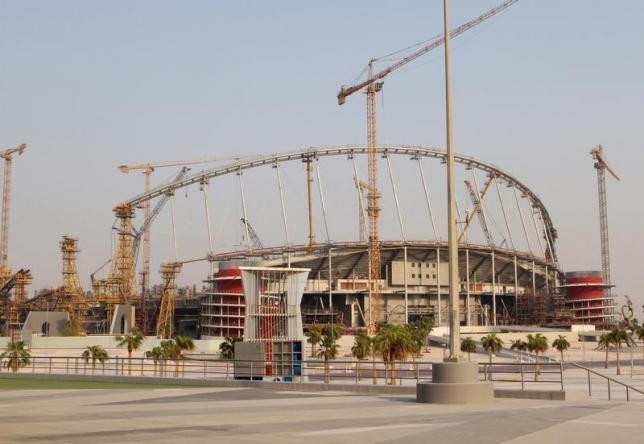Qatar rejects rights group report on "rampant" labour abuse
DOHA: Qatar's government has rejected a report by Amnesty International which said abuse of migrant labourers in the Gulf Arab state remains "rampant" five years after it won the right to host the World Cup.
A statement by Qatar's Government Communications Office sent to journalists late on Tuesday said that the Amnesty report "does not accurately reflect the progress" Qatar has made in reforming its labour system.
"We feel that the accusation that Qatar has failed to improve the human rights of its guest workers is simply untrue. Significant reforms have been made and more are in the pipeline."
Qatar, one of the wealthiest countries in the world which is preparing to host the FIFA World Cup in 2022, has been widely criticised for its treatment of migrant workers, especially in the construction industry.
Amnesty's report on Tuesday said that under Qatar's "kafala", or work-sponsorship system, foreign workers are still required to seek their employer's consent to change jobs or leave the country, putting them at the mercy of their employers.
The Qatari government statement denied workers were being exploited and said that Qatar had made reforms including a wage protection system requiring companies to pay salaried workers by electronic bank transfer and a law making it illegal for companies to withhold workers’ passports.
It said the reforms were a work in progress and marked "the beginning of the end" of the so-called "kafala" laws in Qatar.
The Amnesty report described Qatar's changes as "tinkering around the edges".
With nearly $200 billion worth of infrastructure projects planned, hundreds of thousands of workers have been recruited from countries such as India, Nepal and Bangladesh.
About 260 migrant workers from India have died in Qatar in 2015, according to figures from the Indian embassy in Doha seen by Reuters. The figures were for all Indian migrant deaths and did not specify whether they were all working on World Cup projects.
FIFA said in a statement on Tuesday that it believed that the World Cup could be a "catalyst" for improved working conditions in Qatar.






